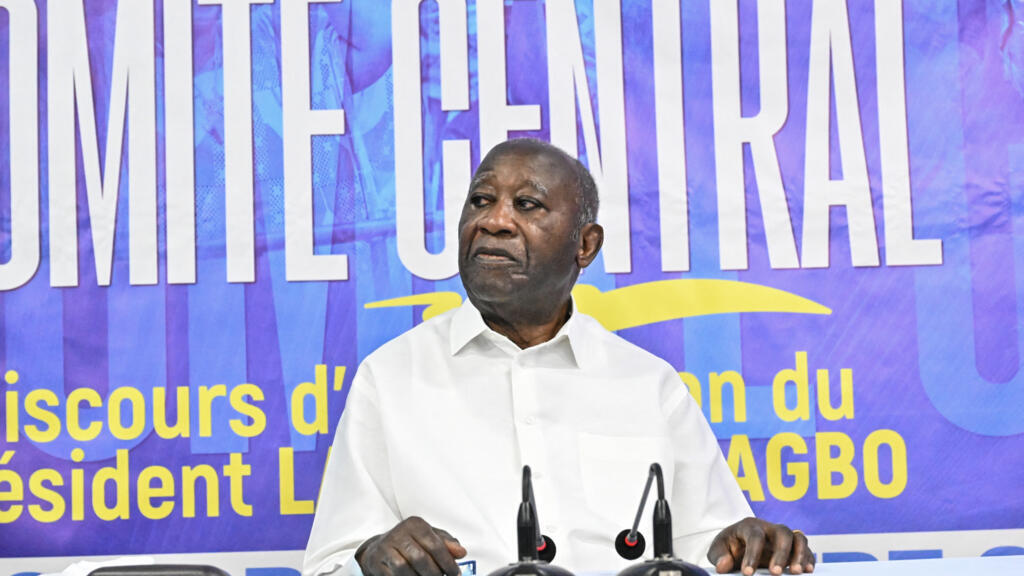
In a statement released on Thursday, the National Security Council announced it would ban any public gatherings aimed at challenging the Constitutional Council's ruling barring two opposition leaders from standing in this month's election – a move that analysts say could backfire.
The measure comes as the two main opposition parties were planning to hold a march on Saturday to "demand dialogue for inclusive, transparent, and democratic elections".
The National Security Council (CNS) indicated that 44,000 members of the security and defence forces had been mobilised to "ensure a secure and peaceful election", carrying out joint patrols.
The statement said that since the Constitutional Council published its final list of candidates for the 25 October presidential election, “several individuals, including political leaders, have been making xenophobic, hateful and subversive statements and spreading false information likely to disturb public order".
Saturday's planned march has now been banned because it posed "risks of public disorder," according to the prefecture.
Thousands in Côte d'Ivoire protest exclusion of opposition leaders from election
Risk versus reticence
For some analysts, despite the ban the risk of unrest remains.
"It's particularly intense in Cote d'Ivoire at the moment," researcher Paul Melly of British think tank Chatham House told RFI.
"Many young West Africans, particularly in the francophone countries, are frustrated with the political process and the political class more generally. And there's a sense that the political class is preoccupied with its traditional disputes, its inter-partisan wrangles and tussles over power. And that they're rather detached from the reality of people's everyday lives."
This all leads, he believes, to "a risk it could boil over and that there could be violence".
Why Côte d’Ivoire’s election could be more complex than it seems
He counters, however, that Ivorians are wary of violent protests, citing the events of 2010-11 around the election in which current President Alassane Ouattara came to power and incumbent Laurent Gbagbo refused to accept the result, sparking the Second Ivorian Civil War.
"With those past crises seared deeply into the memory of many Ivorians, there is a reticence to [take] political confrontation too far and take it out on to the streets, because many people feel they never want to go back there," he said.
The more pressing concern, according to Melly, is that young Ivorians will become disillusioned with the political process as a whole.
'France's last bastion'
Ouattara, 83, who has led the country since April 2011, is seeking a fourth term, having changed the constitution in 2016 to remove presidential term limits, angering the opposition.
The former economist had a career as an international civil servant, notably at the International Monetary Fund, where he became director of the Africa department, then at the Central Bank of West African States in Dakar.
As president, he has been credited with keeping Côte d'Ivoire prosperous and economically dynamic.
"I am a candidate because our country is facing unprecedented security, economic and monetary challenges, the management of which requires experience," he said in a speech on 29 July.
However, Ouattara's Côte d'Ivoire is also seen as "France's last bastion", and he maintains close ties with France's Emmanuel Macron – which, according to political scientist Mathias Hounkpé "has diminished his ability to intervene in crises in the Sahel".
Press freedom NGO urges Côte d’Ivoire to protect journalists ahead of election
Disqualifications
Four candidates are standing against the incumbent president: former ministers Jean-Louis Billon, Ahoua Don Mello and Henriette Lagou, and Simone Gbagbo, the former wife of former president Gbagbo.
But neither of the main opposition parties – the PDCI and PPA-CI – have been able to field a candidate, due to several being disqualified by the Constitutional Council, including Laurent Gbagbo and Tidjane Thiam, former minister of development.
The presidential campaign officially begins on 10 October and will end on 23 October, two days before voting begins.
Provisional results will be published by the Independent Electoral Commission (CEI) between 26 and 30 October. To be elected in the first round, a candidate must obtain an absolute majority of the votes cast. If none of the candidates manage this, a second round could take place on 29 November.
This article was partially adapted from the original version in French.







